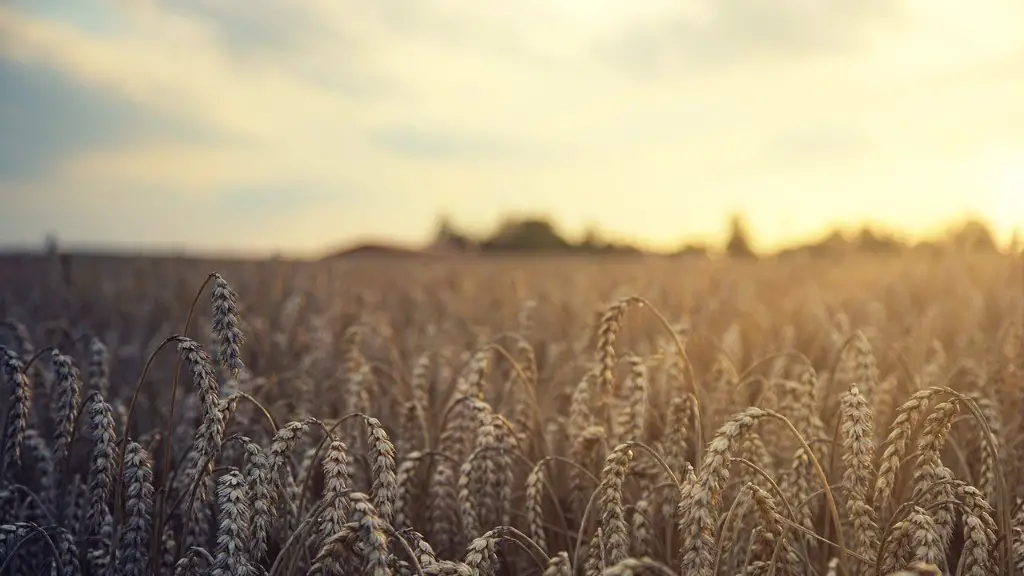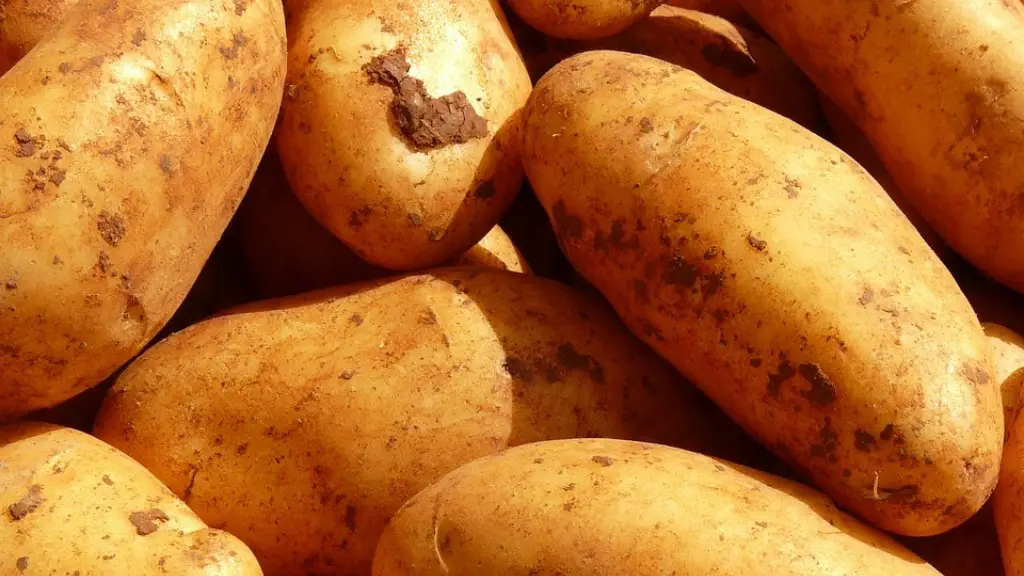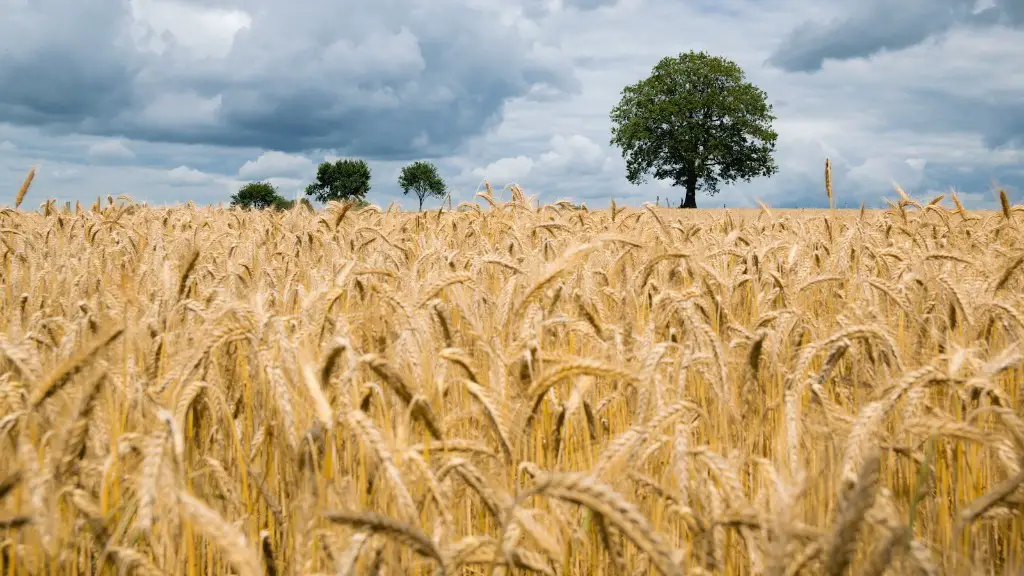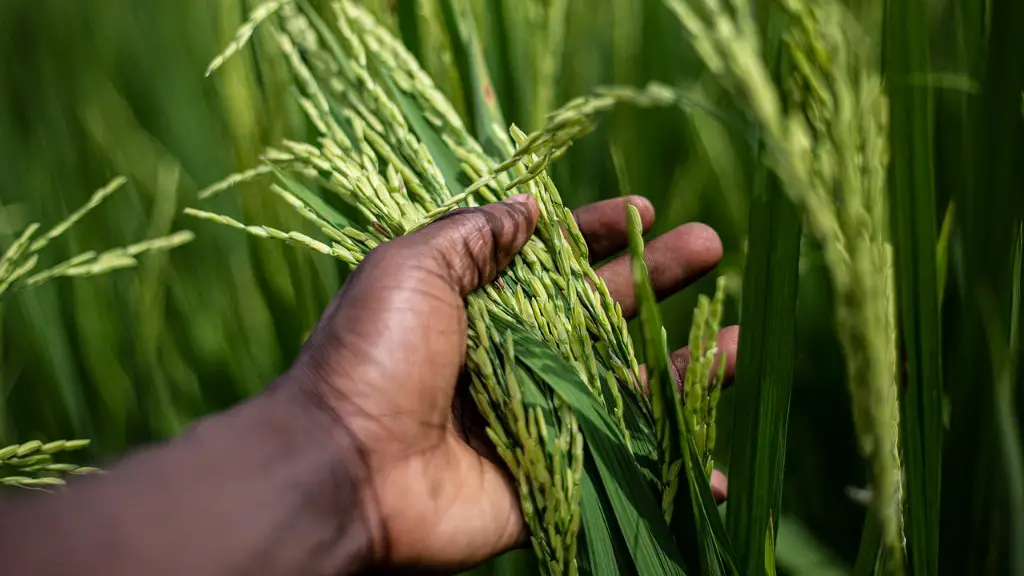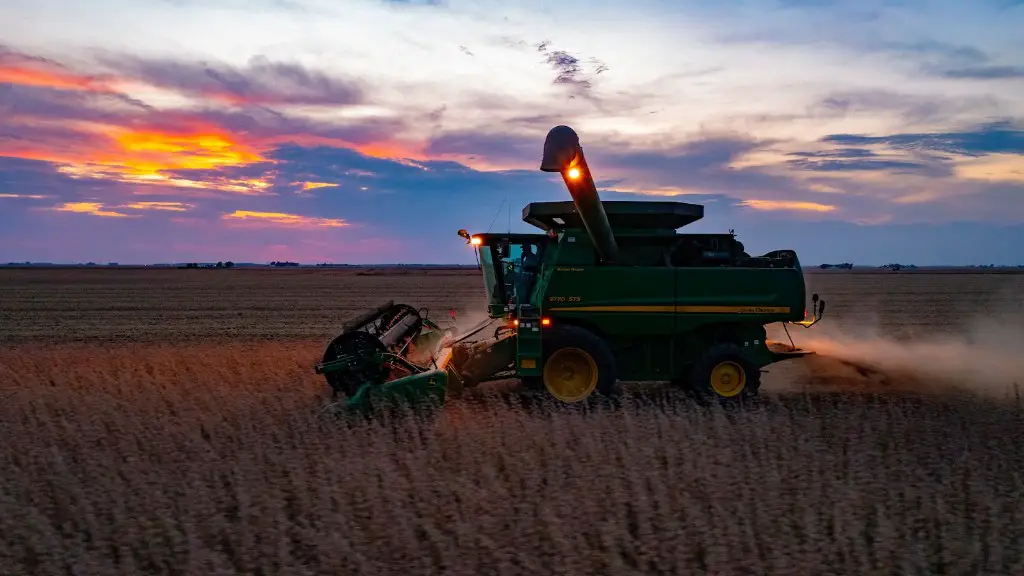agriculture contributes to groundwater depletion by irrigation. When farmers water their crops, the water seeps into the ground and evaporates, leaving behind minerals and salts. Over time, this build-up can make the groundwater too salty for plants to grow. In addition, agricultural drainage systems can remove water from the soil, making it difficult for plants to access the water they need.
Agriculture contributes to groundwater depletion in a number of ways. irrigation can lead to groundwater depletion if water is not properly managed. In addition, the over-pumping of groundwater can lead to depletion. Agricultural chemicals can also contaminate groundwater and lead to depletion.
How does agriculture affect groundwater?
Agricultural contaminants, such as fertilizers and pesticides, can impair the quality of surface water and groundwater. These contaminants can be transported into local streams, rivers, and groundwater through runoff and infiltration.
The USDA estimates that agriculture accounts for approximately 80% of the nation’s water use. In agriculture, water is used to grow fruits, vegetables, and raise livestock. Water is also used in agriculture for irrigation, the application of pesticides and fertilizers, and frost control.
How does agriculture use groundwater
The growing importance of groundwater for agriculture can largely be explained by the capacity of groundwater to act as a reliable water source for irrigation. Groundwater is less likely to be affected by seasonal surface hydrological variation, making it a dependable source of water for crops. In addition, groundwater can provide water on demand, furthering its usefulness for agricultural purposes.
Groundwater depletion can have a number of negative effects, including drying up of wells, reduction of water in streams and lakes. In some cases, it can also lead to subsidence (sinking) of the land surface.
How much water is wasted in agriculture?
On average, farms around the world account for 70% of all water that is consumed annually. Of that 70% used by farmers, 40% is lost to the environment due to poor irrigation systems, evaporation, and overall poor water management. This is a huge problem that needs to be addressed in order to ensure the sustainability of our food supply.
Agricultural irrigation is a major water user worldwide, accounting for 70% of water use. In many OECD countries, agricultural irrigation accounts for over 40% of water use. Intensive groundwater pumping for irrigation can deplete aquifers and lead to negative environmental externalities, causing significant economic impact on the sector and beyond.
Which agricultural source can affect ground water?
Nitrate from agriculture has become one of the most common chemical contaminants in the world’s groundwater aquifers. This has led to serious environmental consequences, such as eutrophication of lakes and coastal waters, which in turn affects biodiversity and fisheries.
Farming activities are a major contributor to water pollution. Chemicals used in farming, such as pesticides and fertilizers, can leach into groundwater and drain into surface water bodies. This can change the physico-chemical properties of water and detriment the aquatic ecosystem. To reduce water pollution from farming, farmers can use less chemicals, or they can utilize best management practices to reduce the amount of chemicals that leach into groundwater.
What is groundwater depletion
Groundwater depletion can have a number of negative effects, including lowering of the water table and loss of groundwater access. Excessive pumping can lower the groundwater table, making it difficult or impossible for wells to reach water. This can lead to water shortages and increased dependence on surface water sources. Groundwater depletion can also cause land subsidence and contribute to groundwater contamination.
The San Joaquin Valley of California is one of the world’s major agricultural areas. So much groundwater has been pumped that the land has subsided many tens of feet. The signs on the pole show where ground level was at different years. The subsidence is due to groundwater depletion.
What are the causes and consequences of groundwater depletion?
Ground-water depletion is an ongoing and increasing problem in many areas of the United States and around the world. Depletion happens when ground-water withdrawals exceed the amount of recharge, or natural replenishment, of the aquifer. When this happens, water levels in the aquifer decline, and wells have to be drilled deeper to access water. This can lead to increased pumping costs and deterioration of water quality. Additionally, water levels in streams and lakes can be reduced, and land subsidence can occur.
Water-intensive crops like rice, soybeans, wheat, sugarcane, and cotton require a lot of water to grow. Alfalfa and pasture are also water-intensive crops.
What are the biggest contributors to water waste
If you have a leaky pipe, it’s important to get it fixed as soon as possible. Leaky pipes can not only lead to a huge waste of water, but they can also cause low water pressure and structural damage.
Water is a key resource for agriculture and the sector is one of the largest users of freshwater globally. The agricultural sector is also one of the main sources of pollution to surface and groundwater resources. In order to meet the world’s ever-growing demand for food, it is essential that agriculture is practised in a way that is both productive and sustainable.
The use of agricultural water makes it possible to grow fruits and vegetables and raise livestock, which is a main part of our diet. Agricultural water is used for irrigation, pesticide and fertilizer applications, crop cooling (for example, light irrigation), and frost control.
In many parts of the world, irrigation is essential to agriculture as it helps to ensure a reliable water supply for crops. It also allows farmers to grow crops in areas where rainfall is insufficient. However, irrigation can also lead to waterlogging and salinity problems if it is not managed properly.
Pesticides and fertilizers are commonly used in agriculture to improve crop yields. However, these chemicals can pollute surface and groundwater resources if they are not used correctly. It is therefore important to follow the manufacturer’s instructions carefully and to only use the minimum amount of these chemicals necessary.
Crop cooling is a
What agricultural activities could deplete the water table?
The land used for cultivation has increased, so the consumption of water for agriculture has increased. Due to irregular rainfall, the consumption of groundwater has increased, which has led to the depletion of groundwater.
Agricultural runoff is a major source of water pollution. It is caused by poorly managed animal feeding operations, overgrazing, overworking the land, and poorly managed and ineffective application of pesticides, irrigation water, and fertilizer.
Warp Up
Agriculture is one of the leading causes of groundwater depletion. With the increasing demand for water for irrigation, farmers are pumping more water from the ground than ever before. This can lead to a decrease in the water table, as well as lower water quality. In addition, the use of chemicals and fertilizers can contaminate groundwater supplies.
Groundwater depletion is a concern for many farmers and agricultural industry professionals. In some areas, such as California’s Central Valley, groundwater depletion has been caused by over-pumping and has resulted in serious problems, including land subsidence. In other areas, such as the High Plains aquifer, depletion has been caused by a change in land use, such as the conversion of native vegetation to cropland. While there are many ways to address groundwater depletion, one of the most important is to increase agricultural efficiency and reduce water waste.
